Photos courtesy Rotary Club of Nuku'alofa
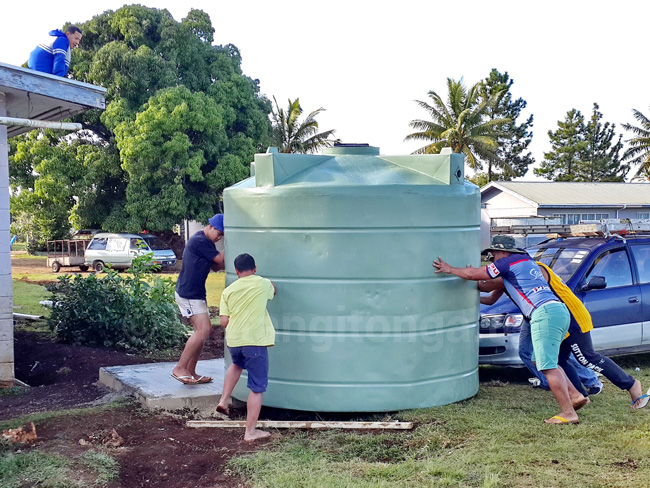
More than 900 students in several schools on Tongatapu now have safe and accessible drinking water thanks to community efforts to restore broken water catchment systems. Lack of clean drinking water can cause ill health and poor attendence among students.
Rotary Club President Peter Poulsen said the water project was a combined effort by the Rotary Club of Nuku'alofa, community members, school faculty, an experienced team of workers, and grant from the Australian High Commission.
“By bringing together communities, schools, experienced teams, and supporters we can collectively ensure a safer educational environment for our children,” he said.
“One of the reasons school water catchment systems are a significant problem is simply due to lack of basic maintenance. The Rotary Club has been able to show that repairing or replacing these systems is a relatively simple and cost-effective investment in the health and educational performance of our nation’s children,” Peter said.
Pilot project
In early 2015 the Rotary Club of Nuku’alofa invited a sampling of government primary schools and Free Wesleyan primary schools to submit proposals for needed repairs, which included improving water catchment systems.
Rotary selected three schools and approached the Australian High Commission to support a pilot project to upgrade water catchment systems to improve the quantity and quality of water available to the children. As part of this pilot project, the Rotary Club documented the process so that interested schools and partners can carry out similar projects in future.
The work supported by volunteers during July and August 2015 was completed at:
- Longolongo GPS (about 230 students): new gutters and piping installed on one building. Result: one tank system now functioning.
- Nukunuku FWPS (about 170 students): new gutters and piping installed, fibreglass tank patched, faucet upgraded. Results: two tank systems now functioning.
- Vaini GPS and GMS (about 550 students): three tank systems repaired, cement walkways laid next to two existing tanks, foundation pad and new tank installed, new gutters and pipes to all three tanks. Results: three tank systems now functioning.
Water initiative
Many schools in Tonga need upggrades of water systems, hand washing stations, toilets, and water pumps.
Club Treasurer and technical advisor Robert Bolouri believed that a national school water catchment upgrade initiative could be implemented in a partnership between government, church, and non-governmental organizations and others.
“This initiative would build on lessons learned in Tonga and other countries to efficiently coordinate resources, with an emphasis on community involvement in the upgrades and ongoing maintenance,” said Robert.
The pilot project had learned that
- Installing water catchment systems is neither difficult nor expensive.
- Maintenance is key – school teams of committed people to clean and maintain water catchment systems could be linked to local “green team” initiatives.
- Children should be taught how to properly use these systems, to avoid equipment damage and inefficient use of the water. Training could be tied to health and environmental education efforts at schools that could also include instruction in handwashing, toothbrushing, and sustainable use of water resources.
“More children can have access to safe drinking water by linking interested sponsors and supporters, businesses, communities and individuals,” Peter said.


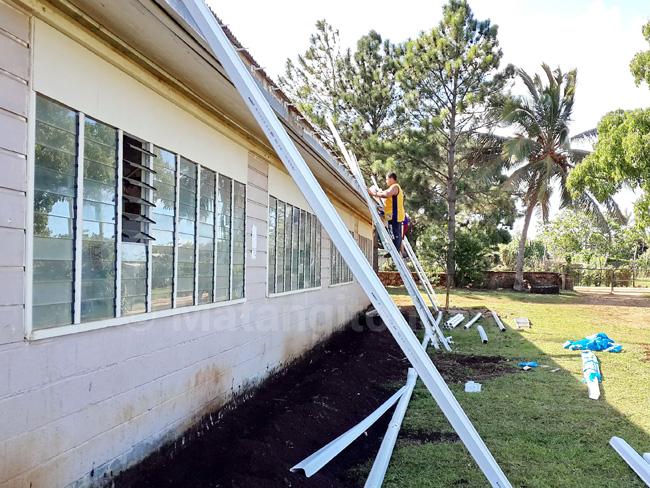
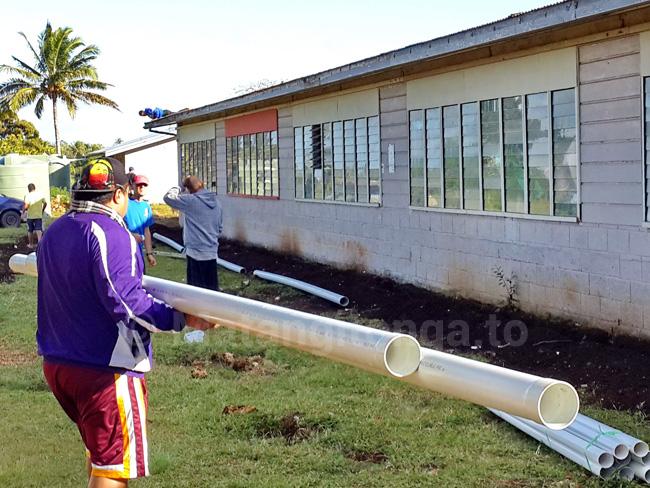
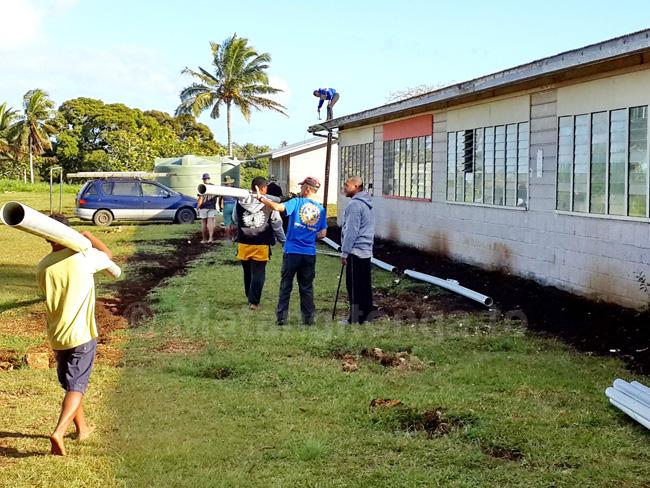
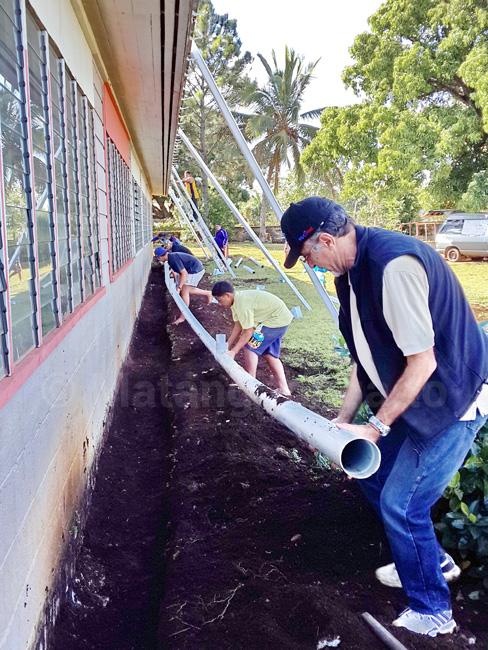


Comments
If any of your readers would
If any of your readers would like to support further work in this area, we are happy to share the full lessons from this work, and seek ways in which we might be able to work together, they can email Robert on robert.bolouri@tongacable.to or me on peterpoulsentonga@gmail.com Thanks. Peter.